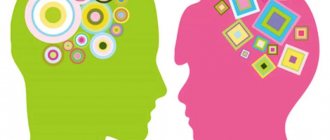Transpersonal psychology is a scientific movement in modern practices of psychology, which is based and progresses on the foundations of Western psychology, while introducing into practice the accumulated knowledge of spiritual and religious plans, adapting them to psychotherapeutic practice.
She focuses her attention on the deep areas of the human psyche, processes that develop personality and the dynamics of consciousness, philosophical rethinking, scientifically based ideas, experiments and world psychological technologies.
Transpersonal psychology in its teaching implies finding in a person’s memory the processes of his maturation in the womb and subsequent birth.
Transpersonal psychology explores the maximum possible abilities and capabilities of each individual person, which means that research is carried out in the transpersonal and superpersonal sphere of consciousness. The theme of superman and super being is touched upon here. The nature of the occurrence of emotional experiences, their form and cause-and-effect relationships are also studied. On the basis of what experiences and emotions arise, where they come from and what they can transform into, you can also think about where these emotions can be directed in order to extract maximum benefit from it, primarily for the person himself.
The object of study of transpersonal psychology is a person with a creative nature, looking for ways of self-improvement and self-knowledge, with the desire for all possible realizations of their capabilities, at the same time from an adequate and balanced side. First, you need to discover these capabilities in yourself and bring them to a minimum level.
In transpersonal psychology, the universe is a harmonious and holistic environment in which a person is aware of his capabilities and understands the connection not only with the people around him, but also with the Universe as a whole.
What is transpersonal psychology
Transpersonal psychology is a science that studies altered states of human consciousness and psyche. Its basis is considered to be the research of Carl Jung and Abraham Maslow. According to scientists, there is something unconscious inside every person. And it affects the formation of personality, behavior, relationships with other people. At the peak of experience, this unconscious is revealed, which helps to cope with many internal problems.
In addition to Maslow, representatives of transpersonal psychology were E. Sutich, S. Grof, J. Fadiman, M. Wich, S. Margulis. Each of them complemented science, opened a new direction in it and conducted experiments.
Scientists created the Association of Transpersonal Psychology and published a journal dedicated to it. A few years later, the Institute of Transpersonal Psychology was created in California. Its founder was Robert Fager. Despite this, this movement did not gain recognition in scientific circles for a long time. Many even considered it absurd.
This changed in 1996 when the British Psychological Society opened a department of transpersonal psychology. This contributed to the growth of its popularity among scientists. Books have also been written on transpersonal psychology. The most famous of them are “Beyond the Brain. Birth, death and transcendence in psychotherapy" (S. Grof) and "Cosmic game. Exploring the Frontiers of Human Consciousness” by the same author.
This direction studies several areas at once:
- altered consciousness;
- parapsychology;
- spiritual and religious practices;
- the influence of psychedelic drugs on human consciousness and psyche;
- breathing techniques;
- yoga, meditation techniques;
- the world of experiences associated with death.
Another area of transpersonal psychology is the spiritual development of a person.
Subject of study
- Human consciousness, ways of expanding it and studying the resulting states.
- Parapsychology. The study of phenomena that cannot be explained by the activities of the organs of touch and senses.
- The ability to narrow consciousness to a specific specific organ. Focusing on a specific organ to study or diagnose it, followed by treatment.
- Spiritual practices and religions and their influence on the psyche, regarding psychiatry and psychology.
- The influence and effect of psychedelic drugs on human consciousness.
- Breathing exercises and practices and their effect on mental state. This includes holotropic breathing and rebirthing.
- Meditations. The influence of meditation on the psyche.
- Yoga practices.
- Spiritual growth and its psychological component.
Transpersonal psychology tries to capture the full picture of human existence, while other sciences give preference to a limited part of realistic processes.
Transpersonal psychology studies a wide range of phenomena in human experience:
- Changes in the state of consciousness, this can also include changes using regressive hypnosis.
- Diversity of states of consciousness.
- Crisis of the spiritual sphere.
- Near-death experiences and states.
- Intuition and the possibilities of its development.
- Creative abilities – their manifestations and development.
- Higher spheres of consciousness and their states. Achievement and analysis.
- Personal resources.
- Phenomena of a parapsychological nature.
Transpersonal psychology has several representatives of scientists with different approaches and concepts.
The first beginnings of transpersonal psychology can be found in the works of Carl Jung. According to his theory, the study of the deep spheres of the psyche is possible through personal cognition, which transforms into knowledge and passes into an unconscious state into the subconscious.
William James is considered to be the founder of transpersonal psychology.
- Abraham Maslow. The founder of the doctrine of self-actualization of personality. The teaching is built on peak experiences, such as climax (orgasm) in love relationships and sex, sudden insights and the birth of new ideas, ecstasy, expansion of the boundaries of consciousness, loss of one’s “I”. Abraham Maslow's research is the basis for transpersonal psychology.
- Stanislav Grof. Researcher of psychedelic drugs and their effects on the psyche. The effect of the drug is based on a change in consciousness and perception of the environment, as well as an impact on the emotional sphere. The approach is based on psychotherapeutic work with self-knowledge, through a forced change in consciousness under the influence of psychotropic drugs. Founder of the holotropic breathing technique. The holotropic breathing technique is based on removing blockages that hold back internal resources and energy flows, which can be used to activate suppressed consciousness and transform it into flows of positive energy and experiences aimed at learning something. In the theory of Stanislav Grof, two types of consciousness are distinguished: consciousness focused on the reality of touch and consciousness focused on internal reality, the one that is not tangible. Moreover, both states are real and capable of interacting with each other. The main achievement of Stanislav Grof in transpersonal psychology is the assumption that almost all illnesses of a psychological nature, only hidden under the guise of an illness, are not actually such. All mental illnesses are basically a crisis state of the body in terms of personal or spiritual growth. No one is immune from such cases, and anyone can be at risk.
- Vladimir Maikov. Scientific figure adapting and developing transpersonal psychology in Russia using the methods and experiences of Western colleagues. Introduction of transpersonal psychology and its methods through trainings, seminars and webinars. One of the techniques: holotropic breathing as a solution to life’s difficulties. Expanding consciousness and going beyond one’s “I” with the help of breathing practices and exercises.
Transpersonal psychology makes it possible to understand that the human psyche is richer and more intricate than it initially appears. The human subconscious hides secrets that normally cannot be revealed. From the subconscious you can extract amazing memories that the conscious mind may not even be aware of.
Key Ideas
In short, transpersonal psychology is based on the idea that there is an unconscious part of the human psyche. It influences lifestyle, thinking, views, principles, priorities. Determines a person’s behavior throughout his life.
The unconscious layer consists of feelings, experiences, emotions that have been repressed from consciousness for various reasons. This also includes memories.
Definition
Transpersonal psychology is the scientific study of the experience of altered states of consciousness, which in traditional psychology are classified as simple fantasies or psychotic episodes. Unlike anything that came before, transpersonal psychology studies religious experiences, Eastern practices, and other alternative methods of manifesting the spiritual aspects of consciousness. Thus, it recognizes and studies the existence of human experience that goes beyond the physical field.
The difference between transpersonal psychology and other sciences
Most areas of psychology require facts, arguments and evidence. And they must be reliable. The transpersonal branch is based exclusively on unconscious manifestations of personality. There are 5 main principles of transpersonal psychology:
- Consciousness is limitless, like space.
- Personality can be viewed from different angles, in different contexts.
- Human consciousness is combined with the mind of the Universe.
- A person's personality is determined by his soul and mind. And they, in turn, form a single whole.
- Science combines knowledge even from seemingly completely dissimilar sciences.
Psychologists working in the transpersonal direction have still not been able to scientifically confirm the reliability of their research. But one thing is for sure: science is capable of combining psychophysics and psychophysiology.
Criticism
The main aspect of criticism of transpersonal psychology is the questioning of the scientific status of its research and conclusions, despite the popularity and large number of its adherents. In the works of a number of critics, transpersonal psychology is accused of neo-mysticism and is considered a form of parascience or quasi-science.
Also, the main problems of transpersonal therapy include the following:
- manipulation by practicing therapists with the patient’s consciousness not from the point of view of the scientific method, but from the position of some pseudo-guru;
- interpretation of emotional problems as norms of spiritual development;
- recognition of mystical cults, which do not always have a high moral basis;
- the use of psychotechniques that can be abused by various “trainers”, “psychological healers” and other charlatans;
- an uncritical attitude towards hallucinatory experiences that do not always have psychotherapeutic value.
Methods of transpersonal psychology
Conventionally, the techniques of transpersonal psychology can be divided into 2 groups: general and for analyzing changes in consciousness. The first group includes:
- breathing practices;
- psychophysiological experiments;
- use of psychedelic drugs;
- psychodiagnostics;
- effects on touch and other senses;
- Imagination games, visualization.
In order to initiate changes in consciousness, several techniques are used:
- Concentrating attention first on one thing and then on another. The switch happens abruptly.
- Limiting fluid intake during intense physical activity.
- Excessive activity, such as running without stopping for a long period of time.
- Alternating interaction of low and high temperatures.
- Impact of music.
- Staying alone.
- Being in an immobilized state.
- Insomnia.
- Holotropic breathing.
Transpersonal psychology techniques such as rebirthing and theta healing are also considered quite popular.
Idea
The central idea of transpersonal psychology is the statement: - what we consider a “normal” state is to some extent limited. And the highest point of our development is by no means “optimal” human psychological functioning, freedom from anxiety and irrational negative thoughts, and not an optimistic view of what is happening. That there are potentially higher functioning states, and it is in these states that our perceptions are enhanced - we experience a heightened sense of connection with nature and other people, become more compassionate and altruistic, and have a broader view of our own development and fulfilling lives. According to Abraham Maslow, the role of transpersonal psychology is to explore the “further paths of human nature.”
Transpersonal psychology of Grof
Stanislav Grof devoted several years to studying that unconscious part of the human psyche that manifests itself with altered consciousness. During his work, he used psychedelic drugs. However, their use was soon banned. The scientist had to start developing a new way to penetrate the inner world of a person. It turned out to be holotropic breathing. This technique helps to cope with a number of obstacles that arise on the path to changing consciousness. There are 4 of them:
- At the moment when the unconscious layer of the psyche is opened, all senses are activated.
- Memories surface, for example, psychological traumas that the brain chose to “forget” about.
- Experiences appear that are in one way or another connected with death and birth.
- The transpersonal part of the human psyche appears. There is an expansion of consciousness, it goes beyond the limits of time and space.
Approaches to self-knowledge and self-development
- Psychological therapy based on body orientation. Concentration of attention on objects and contacts with them.
- Art therapy. Studying new works, getting acquainted with the creativity of different eras and peoples.
- Breathing practices and techniques. Holotropic breathing, rebirthing.
- Meditation. Achieving peace, restoring harmony with oneself.
- Yoga class. Harmony with the body.
- Analysis and elaboration of dreams. Memorizing your dreams, trying to analyze them and understand why you dream something and why.
- Activating the imagination.
Approaches and techniques in transpersonal psychology emphasize natural, direct and frank experience with the manifestation and expression of sincere emotions that help a person open up and discover emotional problems, make discoveries and gain insight. In the same way, interpersonal problems in relationships can be solved by attracting the unconscious forces of a person.
Rebirthing technique
Developed by American scientist Leonardo Orro more than 40 years ago. This is a breathing technique that allows a person to be born again, getting rid of negative emotions in the subconscious.
According to Orro, traumatic events happen to people from birth. In fact, birth itself can be included in this list. All this greatly affects physical and mental health. Consciousness protects a person from these memories, hiding them in the “storage” of the unconscious. But still he suffers from fears, complexes, and worries associated with these injuries.
Rebirthing helps to cope with the above problems. Being reborn, a person experiences the worst moments of his life over and over again. He transforms all negative emotions into positive energy, while experiencing unprecedented harmony. In many ways, the rebirthing technique is similar to holotropic breathing. It looks something like this:
- A person breathes through his nose or mouth. You can inhale however you like. Exhale as usual.
- As soon as your breathing calms down, you need to relax. The best position for this is lying on your back. You can't cross your legs. Consciousness must be freed from any thoughts.
- Focus on the sensations in your body. Did you feel a slight tingling or pain? This makes itself felt by one of the negative memories hidden in the subconscious. Try to remember and feel it.
- Turn bad into good. How to do it? Think about negative memories with humor. The alternative is to experience the pleasure of the negativity finally leaving the body.
For rebirthing to produce results, it must be taken seriously. You also cannot ignore the sensations that arise in your body.









